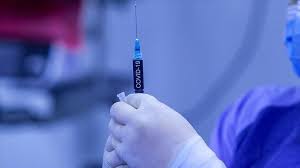Speaking with 10News, Prof. Kennedy said, “The worst-case-scenario is that skipping the second shot could allow the virus to spread and mutate, and potentially build resistance to the vaccines.”
Also, in an article on the website of Ohio State Wexner Medical Centre, an Assistant Professor in the Division of Infectious Diseases at the Centre, Dr. Carlos Malvestutto, said for vaccines that require two doses, the trials helped determine the length of time in-between vaccinations.
“It’s not unusual for vaccines to require back-to-back doses to be most effective. The first dose primes the immune system, while the second dose induces a vigorous immune response and production of antibodies.
“The bottom line is that you want your immune system to produce a robust enough level of antibodies that if you’re exposed to a virus, your body can effectively fight it. Sometimes, that means taking two vaccine doses,” he said.
Malvestutto, however, said one can go three to seven days past when you’re supposed to get the second vaccination, but you really should try to get that second dose as close as possible to the recommended schedule.
He also discussed possible reactions to the vaccination.
“One thing to keep in mind is that you may have some type of reaction to the injections such as low-grade fever, muscle aches, and fatigue.
“That means the body is responding appropriately. The symptoms usually only last a day or two. It’s also possible that the reaction could be stronger after the second shot,” Malvestutto said.
The expert also disabused the minds of anyone who may become careless and lax with self-protection after taking the vaccination.
Malvestutto warned, “Most importantly, these vaccines don’t use the live virus that causes COVID-19. That means getting the vaccine won’t give you COVID-19. But keep in mind that it takes a while for your body to build immunity after vaccination and you can still get COVID-19 just before or after you’re vaccinated.
“Do your part to protect yourself and others. Get a vaccine when it’s available to you, and make sure you don’t skip the second dose. Doing so will help save lives and get us closer to the herd immunity needed to stop the spread of COVID-19.”
Again, an Infectious Disease at the Ohio State University Wexner Medical Centre and a professor emeritus at the Ohio State College of Medicine, Julie Mangino, said the second dose of vaccine gives you the most protection from becoming seriously ill and/or hospitalised due to COVID-19.
“For example, with Pfizer, studies show 52 percent effectiveness after the first dose and 95 percent after the second dose.
“For Moderna, the company reported 80 percent effectiveness after the first dose and 94.1 percent after the second.
“If you don’t receive both doses, then you’re not going to be as protected from becoming seriously ill with COVID-19.
“There’s also the possibility that going too far between doses could allow for more COVID-19 variants to emerge, due to inadequate protection,” Mangino said.
source: Punch

 An Assistant Professor of Biology at the Penn State University, David Kennedy, says skipping the second dose of the COVID-19 vaccine could lead to mutation and allow the virus to spread. Another expert warned that the second dose of vaccine gives you the most protection and prevents you from becoming seriously ill and/or hospitalised due to COVID-19.
An Assistant Professor of Biology at the Penn State University, David Kennedy, says skipping the second dose of the COVID-19 vaccine could lead to mutation and allow the virus to spread. Another expert warned that the second dose of vaccine gives you the most protection and prevents you from becoming seriously ill and/or hospitalised due to COVID-19.







